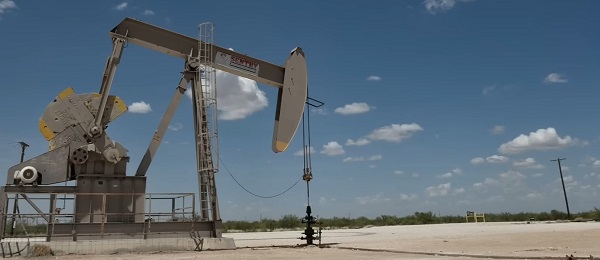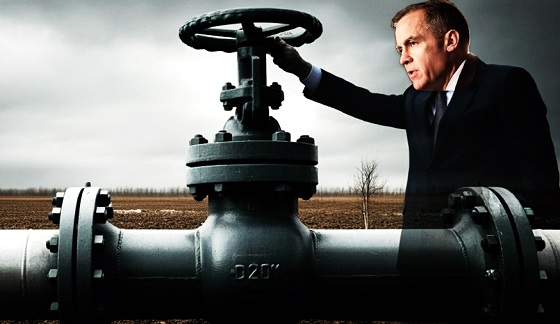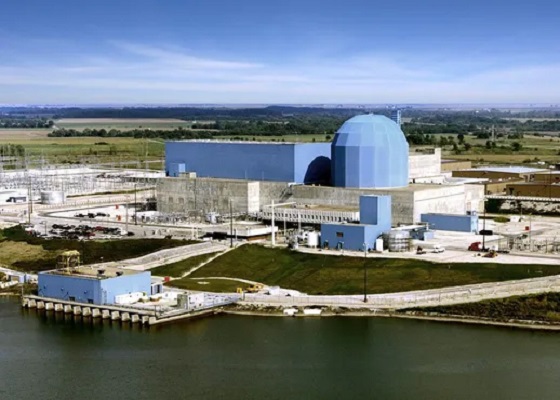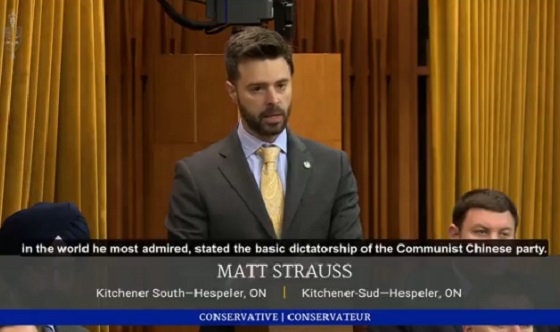Energy
Trump Keeps Focus On America’s Energy Production


From the Daily Caller News Foundation
By David Blackmon
America’s energy landscape continues to shift under President Trump’s second term, and developments of just the past few days underscore a pragmatic pivot in U.S. energy policy. From Alaska’s oil fields to Illinois’ nuclear reactors, the focus is clear: energy security, economic growth, and cutting through the climate alarm-driven fog of the past administration. A pair of major developments this week paint a clear picture of some of the ways Trump administration energy policies are reinvigorating the domestic energy space without more economically ruinous federal spending.
First, the Trump administration’s move to reopen 13 million acres in the National Petroleum Reserve-Alaska (NPR-A) for oil and gas leasing is a gut punch to the Biden-era eco-orthodoxy. Interior Secretary Doug Burgum, called it a return to “balance” after a 2024 rule locked up half the 23-million-acre reserve.
Climate-alarm conflict groups like Earthjustice are predictably apoplectic, warning of climate doom. “By proposing to repeal these science-based regulations, the Trump administration aims to grease the skids for oil companies intent on industrializing even the most sensitive areas in the Western Arctic in pursuit of dirty oil that can have no place in our energy future,” Earthjustice Attorney Erik Grafe said in a release. “The administration should be working to develop a post-oil future for the region, not paving the way for outdated, destructive oil development.”
But native Alaskans living in the state’s Arctic North Slope region take a different view. “Today’s decision by the BLM is another important milestone in our effort to advance our Iñupiaq self-determination on our North Slope homelands,” said Nagruk Harcharek, President of Voice of the Arctic Iñupiat (VOICE). “It underscores what VOICE has always known and argued in court on behalf of our 21 member organizations: that the Biden administration’s 2023 rule affecting our NPR-A lands is deeply flawed and poses significant risks to our communities, economy, and culture. We applaud this development and look forward to collaborative engagement with the federal government and Congress about durable policies that support North Slope Iñupiat self-determination.”
Republican Alaska Representative Mike Begich agreed with VOICE, saying, “This decision is a major victory for Alaska and for every American who believes in energy independence and the rule of law,” said Congressman Begich. “The 2024 restrictions in the NPR-A were imposed with no serious consideration provided to those who work and live in the region and in clear violation of the law – hindering Alaska’s right to responsibly develop our resources.”
The required regulatory process means drilling isn’t imminent, but this signals Trump’s intent to unleash domestic fossil fuels. In a world where China and India still burn coal like it’s 1999, exploiting America’s massive oil and gas resources are a strategic necessity, not a sin.
Meanwhile, a blockbuster deal in Illinois signals an accelerating recovery in the nuclear power industry, focused on fueling AI datacenters. Constellation Energy inked a 20-year pact with Meta to supply 1,121 megawatts from the Clinton Clean Energy Center, powering Meta’s AI data centers starting in 2027. Extending Clinton’s life beyond Illinois’ expiring Zero Emission Credit program, adding 30 megawatts, and saving 1,100 jobs, this market-driven deal proves nuclear can thrive without heavy-handed mandates. It’s a model for keeping reliable, carbon-free power online while tech giants like Meta drive demand through the roof. It is probably no coincidence that this deal comes 10 days after President Trump signed 4 executive orders to jump-start the U.S. nuclear industry in a signing ceremony attended by Constellation CEO Joseph Dominguez and other industry executives.
These stories reveal a U.S. energy policy recalibrating toward pragmatism and strategic positioning. Trump’s team is betting on oil, gas, and nuclear to keep America’s economy humming while trimming the fat from bloated green programs. The NPR-A decision draws a line in the sand: energy security trumps ideology. Meanwhile, Constellation’s deal with Meta reveals a willingness to embrace clean energy; not with more subsidies, but on market terms.
The message is clear: America needs power that works, not intermittently or when the weather is right, but 24 hours every day, 365 days a year, and the Trump agenda is focused on restoring American Dominance in those forms of energy. In a world of rising demand and geopolitical chess, it’s the logical strategic imperative.
David Blackmon is an energy writer and consultant based in Texas. He spent 40 years in the oil and gas business, where he specialized in public policy and communications.
Business
Carney’s Energy Mirage: Why the Prospects of Economic Recovery Remain Bleak

 By Gwyn Morgan
By Gwyn Morgan
Gwyn Morgan argues that Mark Carney, despite his polished image and rhetorical shift on energy, remains ideologically aligned with the Trudeau-era net-zero agenda that stifled Canada’s energy sector and economic growth. Morgan contends that without removing emissions caps and embracing real infrastructure investment, Canada’s recovery will remain a mirage — not a reality.
Pete Townshend’s famous lyrics, “Meet the new boss / Same as the old boss,” aptly describe Canada’s new prime minister. Touted as a fresh start after the Justin Trudeau years, Mark Carney has promised to turn Canada into a “clean and conventional energy superpower.” But despite the lovey-dovey atmosphere at Carney’s recent meeting with Canada’s premiers, Canadians should not be fooled. His sudden apparent openness to new energy pipelines masks a deeper continuity, in my opinion: Carney remains just as ideologically committed to net-zero emissions.
Carney’s carefully choreographed scrapping of the consumer carbon tax before April’s election helped reduce gasoline prices and burnished his centrist image. In fact, he simply moved Canada’s carbon taxes “upstream”, onto manufacturers and producers, where they can’t be seen by voters. Those taxes will, of course, be largely passed back onto consumers in the form of higher prices for virtually everything. Many consumers will blame “greedy” businesses rather than the real villain, even as more and more Canadian companies and projects are rendered uncompetitive, leading to further reductions in capital investment, closing of beleaguered factories and facilities, and lost jobs.
This sleight-of-hand is hardly surprising. Carney spent years abroad in a career combining finance and eco-zealotry, co-founding the Glasgow Financial Alliance for Net Zero (GFANZ) and serving as the UN’s Special Envoy for Climate Action and Finance. Both roles centred on pressuring institutions to stop investing in carbon-intensive industries – foremost among them oil and natural gas. Now, he speaks vaguely of boosting energy production while pledging to maintain Trudeau’s oil and natural gas emissions cap – a contradiction that renders new pipeline capacity moot.
Canada doesn’t need a rhetorical energy superpower. It needs real growth. Our economy has just endured a lost decade of sluggish overall growth sustained mainly by a surging population, declining per-capita GDP and a doubling of the national debt. A genuine recovery requires the kind of private-sector capital investment and energy infrastructure that Trudeau suppressed. That means lifting the emissions cap, clearing regulatory bottlenecks and building pipelines that connect our resources to global markets.
We can’t afford not to do this. The oil and natural gas industry’s “extraction” activities contribute $70 billion annually to Canada’s GDP; surrounding value-added activities add tens of billions more. The industry generates $35 billion in annual royalties and supports 900,000 direct and indirect jobs. Oil and natural gas also form the backbone of Canada’s export economy, representing nearly $140 billion per year, or about 20 percent of our balance of trade.
Yet Quebec still imports oil from Algeria, Saudi Arabia and Nigeria because Ottawa won’t push for a pipeline connecting western Canada’s producing fields to Quebec and the Maritimes. Reviving the cancelled Energy East pipeline would overcome this absurdity and give Canadian crude access to European consuming markets.
Carney has hinted at supporting such a project but refuses to address the elephant in the room: without scrapping the emissions cap, there won’t be enough production growth to justify new infrastructure. So pipeline CEOs shouldn’t start ordering steel pipe or lining up construction crews just yet.
I continue to believe that Carney remains beholden to the same global green orthodoxy that inspired Trudeau’s decade of economic sabotage. While the United States shifts course on climate policy, pulling out of the Paris Accord, abandoning EV mandates and even investigating GFANZ itself, Canada is led by a man at the centre of those systems. Carney’s internationalist career and personal life – complete with multiple citizenships and a spouse known for environmental activism – underscore how far removed he is from ordinary Canadians.
Carney’s version of “clean energy” also reveals his bias. Despite the fact that 82 percent of Canada’s electricity already comes from non-greenhouse-gas-emitting sources like hydro and nuclear, Carney seems fixated on wind and solar-generated power. These options are less reliable and more expensive – though more ideologically fashionable. To climate zealots, not all zero-emission energy is created equal.
Even now, after all the damage that’s been done, Canada has the potential to resume a path to prosperity. We are blessed with vast natural resources and skilled workers. But no economy can thrive under perpetual policy uncertainty, regulatory obstruction and ideological hostility to its core industries. Energy projects worth an estimated $500 billion were blocked during the Trudeau years. That capital won’t return unless there is clarity and confidence in the government’s direction.
Some optimists argue that Carney is ultimately a political opportunist who may shift pragmatically to boost the economy. But those of us who have seen this movie before are sceptical. During my time as a CEO in the oil and natural gas sector, I witnessed Justin’s father Pierre Trudeau try to dismantle our industry under the guise of progress. Carney, despite or perhaps because of his polish, may be the most dangerous of the three.
The original, full-length version of this article was recently published in C2C Journal.
Gwyn Morgan is a retired business leader who was a director of five global corporations.
Business
Meta inks 20 year deal for nuclear power

 MxM News
MxM News
Quick Hit:
Meta has signed a 20-year agreement to purchase nuclear energy from Constellation Energy’s Clinton Clean Energy Center in Illinois. The deal not only saves a struggling nuclear facility from potential shutdown but also signals Meta’s entry into the nuclear space—a direction long championed by President Donald Trump as part of his ambitious pro-American energy strategy. While big tech often aligns itself with global climate pledges, Meta’s move reveals a rare alignment with a policy rooted in national energy security and self-sufficiency.
Key Details:
-
Meta will purchase 1.1 gigawatts of nuclear energy annually starting in 2027, enough to power a mid-sized city.
-
The Clinton Clean Energy Center’s future was in jeopardy until this deal; Meta’s backing enables continued operation and potential expansion.
-
President Trump has signed executive orders aiming to quadruple U.S. nuclear output by 2050, a vision that aligns with Meta’s pivot to nuclear energy.
Diving Deeper:
In a major shift, Meta has inked a two-decade-long deal to buy all the nuclear energy output from Constellation Energy’s Clinton Clean Energy Center. This move secures approximately 1.1 gigawatts of carbon-free power starting in 2027—effectively salvaging a plant that had been teetering on the brink of early closure due to the expiration of state-backed subsidies.
Without Meta’s commitment, the Clinton facility, which has relied on zero-emission credits since 2017, would likely have shut down. Instead, the plant now faces a renewed lease on life and even a proposed expansion of its output by 30 megawatts. While the energy will feed into the regional grid and not directly power Meta’s servers, the tech firm says this still furthers its broader goal of sourcing 100% clean electricity.
Meta’s head of global energy, Urvi Parekh, acknowledged the broader significance of the decision. “We are proud to help keep the Clinton plant operating for years to come and demonstrate that this plant is an important piece to strengthening American leadership in energy,” she said.
That sentiment aligns closely with the vision President Donald Trump outlined in a recent series of executive orders aimed at resurrecting U.S. nuclear dominance. Trump’s directives target a sweeping overhaul of the Nuclear Regulatory Commission, investment in small modular reactors (SMRs), and domestic sourcing of nuclear fuel—policies designed to reverse decades of regulatory stagnation and reliance on foreign energy.
The Meta-Constellation agreement is part of a broader trend among tech titans leaning into nuclear energy. Google has pledged to fund three new nuclear sites and partnered with SMR developer Kairos Power. Amazon, for its part, has invested more than $500 million into SMR projects and bought a nuclear-powered data center campus in March.
However, Meta’s deal with Constellation is its first concrete nuclear investment, representing not just a bet on energy security but also a nod to the Trump administration’s approach. President Trump has repeatedly emphasized the role nuclear must play if America is to achieve true energy independence and withstand the geopolitical threats posed by nations like China, Russia, and Iran.
Constellation CEO Joe Dominguez noted that “supporting the relicensing and expansion of existing plants is just as impactful as finding new sources of energy.” That philosophy mirrors the Trump energy doctrine—pragmatic, forward-looking, and unapologetically pro-American.
Notably, Constellation is also weighing a proposal to build an SMR at the Clinton site, pending regulatory approval. It’s a bold prospect that could align seamlessly with President Trump’s executive mandates to cut red tape and accelerate innovation in the nuclear space.
-

 Business1 day ago
Business1 day agoCarney’s Energy Mirage: Why the Prospects of Economic Recovery Remain Bleak
-

 Business2 days ago
Business2 days agoTo Build BIG THINGS Canada Needs to Rid Itself of BIG BARRIERS
-

 Business2 days ago
Business2 days agoThe world needs energy. Canada has the supply. Other nations eagerly fill the demand.
-

 Business2 days ago
Business2 days agoMeta inks 20 year deal for nuclear power
-

 Alberta1 day ago
Alberta1 day agoAlberta Sports Hall of Fame to Induct Class of 2025
-

 Crime2 days ago
Crime2 days agoBoulder ‘terror’ suspect’s family in ICE custody, pending deportation
-

 Daily Caller24 hours ago
Daily Caller24 hours agoLiberals Embrace Islamic Extremism In Canada
-

 National1 day ago
National1 day agoCensured doctor who’s now a Conservative MP calls COVID mandates ‘full Communism’





